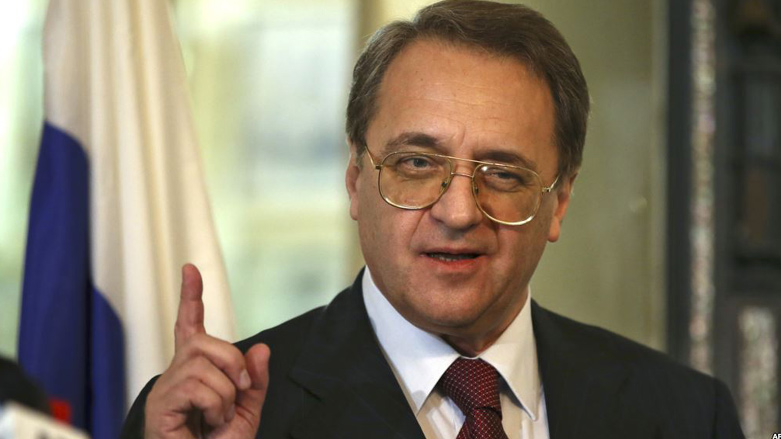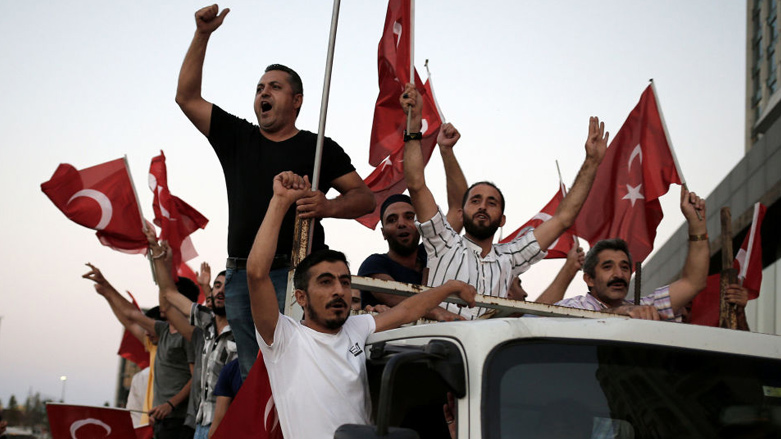Moscow accuses US of encouraging Kurds to separate from Syria

ERBIL, Kurdistan Region (Kurdistan 24) – A Russian official on Tuesday accused the United States of fomenting a separatist movement among its allied Kurdish partners in Syria through its tacit support of the group, according to Russia’s Izvestia newspaper.
Deputy Foreign Minister Mikhail Bogdanov said the US was responsible for fueling thoughts of secession in northern Syria where they support the Syrian Democratic Forces (SDF), which are spearheaded by the Kurdish People’s Protection Units (YPG), in the fight against the Islamic State (IS).
“We believe that some awkward actions of our US partners fueled separatist sentiments among some Kurds,” Bogdanov said in his interview.
He noted that Washington had “created an illusion” among the Kurdish people that the Kurds in northern Syria would be “protected by the US whatever they do.”
The Russian official added this sparked “major concerns with Ankara” about the security of Turkey’s southern border.
Turkish anger over US support for the SDF has been brewing even after Ankara launched its attempted invasion of the besieged Kurdish enclave of Afrin, west of Manbij, where Americans have no presence.
US troops deployed near the territory controlled by the Turkish army and its Islamist proxies continue to act as a de facto peace-keeping force at frontlines between their NATO ally and YPG-led SDF partners.
Manbij, the western-most point of the coalition presence in Syria, is threatening to become a flashpoint between US and Turkish forces. Earlier this month, coalition commander Lt. Gen. Paul Funk warned forces operating in Syria, “[If] you hit us, we will respond aggressively. We will defend ourselves.”
The US also announced it would keep an “open-ended” presence in eastern Syria.
Editing by Karzan Sulaivany

